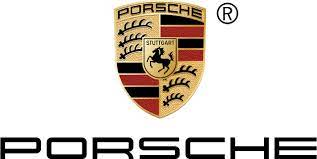
Software plays a key role in modern life, but also in vehicles
London, September 10, 2024, (Oilandgaspress) ––: Today, vehicles are mobile computers with a network of up to 100 electronic control units that control the engine and battery functions, monitor the air conditioning system, and control the infotainment system. And more and more intelligent features such as adaptive cruise control and automated driving functions are being added. All this is only possible with the help of complex software.

As the complexity of the software increases, so too does the work required by OEMs and suppliers to avoid errors and thus ensure high software quality. On the one hand, they use the industry’s standard processes for orientation—particularly Automotive SPICE (ASPICE) and ISO 26262—as well as in-house coding and quality guidelines that, for example, prohibit the use of error-prone functions in certain programming languages. With its development processes, Porsche Engineering reliably and reproducibly achieves ASPICE Level 2. This not only corresponds to the current state of the art and constitutes the essential basis for approval in the vehicle, but also assures customers that errors and non-conformities can be detected and remedied at an early stage.In software development, Porsche Engineering applies the V model (see illustration): On the left, from top to bottom, you will find the steps System requirements, System architecture, Software requirements and Software architecture. At the base of the V is the software design, which is followed on the right-hand side from bottom to top by the steps of unit tests, integration tests and qualification tests as well as acceptance test and use. “Every step on the left matches a test step on the right,” explains Stefan Rathgeber, Director Software High-Voltage Systemsat Porsche Engineering. “In unit tests, for example, we test the smallest unit at the functional level, component tests then follow one level above that.” For all levels, there are test catalogs that factor in all variants.
A dedicated team of quality managers at Porsche Engineering checks whether all process steps are adhered to and documented during software development. They constantly conduct reviews to find problems as early as possible, because the effort required for troubleshooting and remediation rises sharply in later development phases. The impossibility of testing every possible constellation, for example, means that certain unfortunate combinations can cause problems.
The numerous vehicle variants, equipment versions and software updates after delivery of the vehicles pose a special challenge. “Vehicle variants are a big topic at the moment,” says Thomas Machauer, Lead Engineer at Porsche Engineering. “You try to test only the differences between the variants and thereby find the best compromise between effort and quality.”
Information Source: Read More
Oil and gas press covers, Energy Monitor, Climate, Renewable, Wind, Biomass, Sustainability, Oil Price, LPG, Solar, Marine, Aviation, Fuel, Hydrogen, Electric ,EV, Gas,

